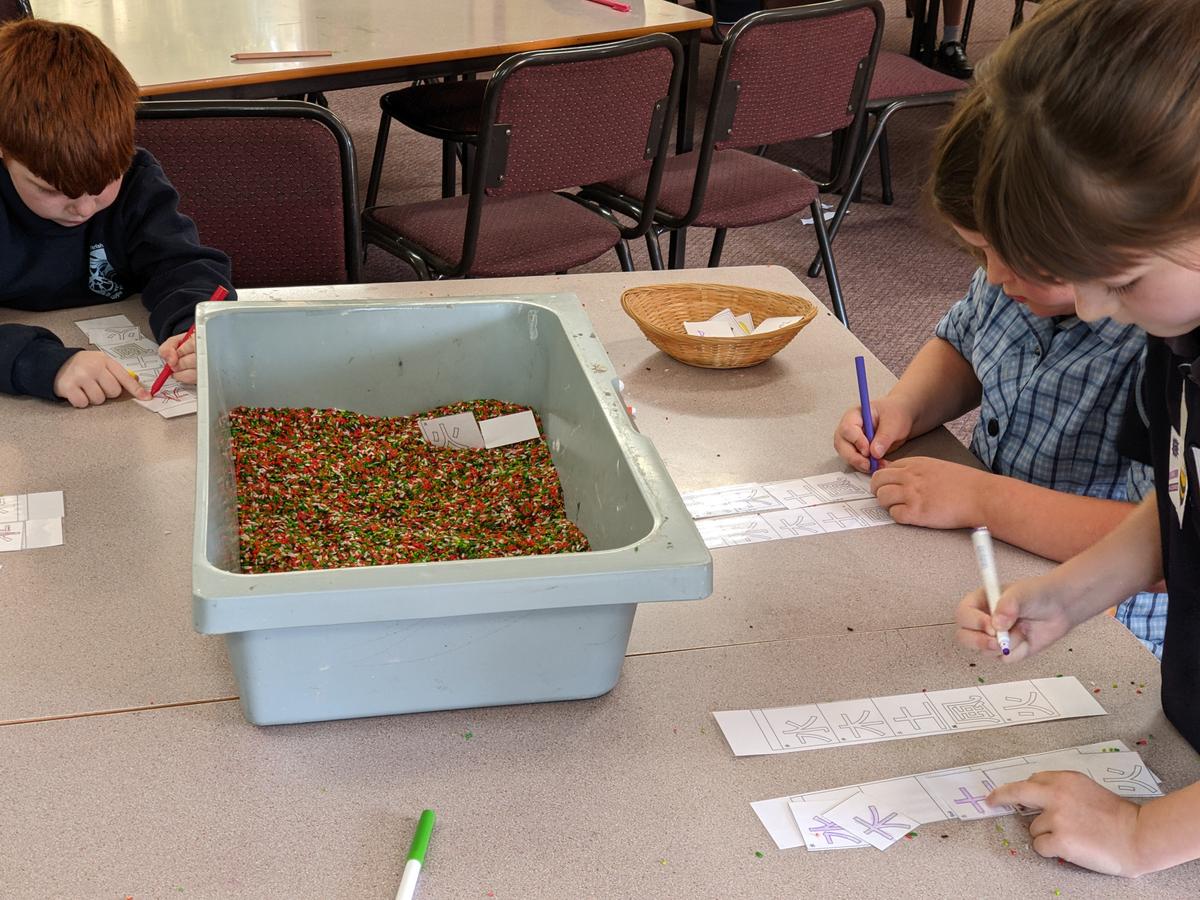Japanese
Kaori Bawden

Japanese
Kaori Bawden
beWe had a great transition lesson with new foundation students the other day. We made the letter N for Ninja with them and our confident foundation students helped and made new foundation students feel so comfortable. I was so proud and very confident that they will be thrilled to come and join us next year.




We continued learning and practicing more about our new kanji in foundation and grades 1 and 2 in many different ways. We have been using coloured rice since the last term for sensory motor skills. They are very engaged to find and match all of the nature-related kanji.




Grades 3 to 6 are having so much fun with Tabemono "Food" unit this term. They experienced the Barley tea called Mugicha for the last time with little treats. Mugicha is caffeine-free, it is an excellent drink at any time of day for people of all ages. After all, Mugicha is a great summer drink because it has a cooling effect on your body while replenishing your body with nutrients. Additionally, the health benefits of Mugicha include good digestion, and enhancing the immune system.
In Japan, we say いただきます "itadakimasu" when we have a meal with appreciation. Saying itadakimasu before a meal is a significant piece of Japanese etiquette, so it's important to learn how to do it right. Usually, everyone will say the phrase together at school, but it's also normal for each person to say it individually as they begin eating.




The target word this week is いただきます "itadakimasu"!
Hope you can practice every meal, everyone!
Please send any questions and recommendations!
Bawden Sensei
kbawden@sjyarrajunction.catholic.edu.au